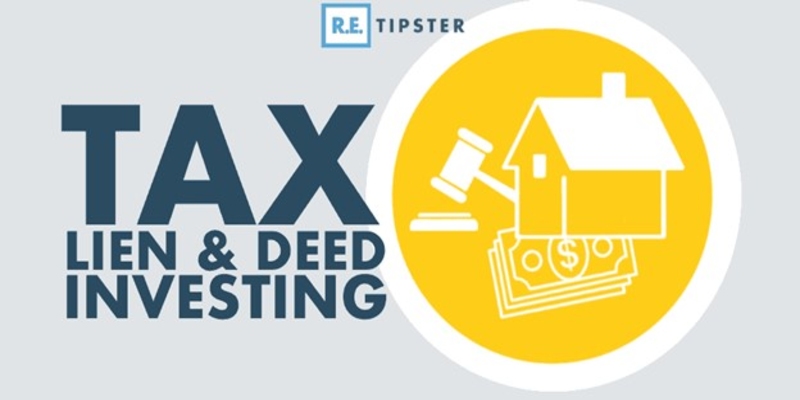Navigating taxes can be challenging, but it becomes even more complicated when a Tax Lien is involved. A Tax Lien can be a serious financial issue for individuals and businesses alike, leading to potential consequences that impact your credit, property, and financial stability. But what exactly is a Tax Lien, and how does it affect you?

In this article, well break down the concept of a Tax Lien, explore the steps involved, and discuss the potential consequences of a Tax Lien. By understanding Tax Liens and the implications they carry, you can take steps to avoid them or resolve them efficiently.
A Tax Lien is a legal claim placed by the government on your property when you fail to pay your taxes. This can include unpaid federal, state, or local taxes such as income tax, property tax, or business taxes. The lien gives the government the right to claim your propertyincluding real estate, vehicles, and other valuable assetsas collateral for the unpaid tax debt.
When a lien is placed on your property, it doesnt mean that the government takes ownership of the property right away. Instead, it ensures that if you try to sell the property, the government will have the first right to collect the unpaid taxes from the proceeds of the sale. Additionally, a Tax Lien can remain attached to the property, even if ownership changes, until the debt is paid off in full. This makes it difficult to refinance, sell, or transfer the property without first addressing the tax debt.
Tax Liens dont appear out of the blue. They are usually the result of unpaid taxes that have gone unresolved for an extended period. The process of a Tax Lien being filed follows several key steps:
The first step in the Tax Lien process is that youll receive a notice from the taxing authority (such as the IRS) informing you that you owe taxes. This notice will typically specify the amount owed and a due date for payment.
After youve been notified of the tax debt, the taxing authority will send you a formal demand for payment. If you do not respond by paying the full amount or setting up a payment plan, the government can take further action.

If the tax debt remains unpaid after the demand for payment, the government can file a Notice of Federal Tax Lien or a state or local equivalent. This is a public document that alerts creditors and the general public that the government has a legal claim to your property due to unpaid taxes. At this point, the lien is officially in place and can begin affecting your assets and credit.
Once a Tax Lien is filed, it can have significant consequences for your finances, property, and credit. Here are some of the most common consequences of a Tax Lien:
A Tax Lien can have a serious negative impact on your credit score, especially if it goes unpaid for a long period. Although the IRS no longer reports federal Tax Liens to the three major credit bureaus (Equifax, Experian, and TransUnion) as of 2018, state and local Tax Liens may still affect your credit. Even without direct reporting, lenders and creditors may still discover the lien through public records, making it harder to secure loans or credit in the future.
With a Tax Lien attached to your property, selling or refinancing your home or other assets can become extremely difficult. The lien must typically be paid off before you can proceed with any property sale or refinancing. Most buyers and lenders will only agree to a deal once the lien is resolved because the lien gives the government the first claim to any proceeds from the property.
While a Tax Lien itself does not result in immediate asset seizure, it sets the stage for more aggressive collection methods. If the tax debt remains unpaid for a long period, the government can move to seize your assets, such as your home, bank accounts, or other valuable property, in order to satisfy the debt.
Although a Tax Lien can feel overwhelming, its not permanent. There are several ways to remove a Tax Lien, depending on your situation:
The most straightforward way to remove a Tax Lien is by paying off the debt in full. Once the debt is paid, the government will release the lien within 30 days. This is the quickest way to resolve the situation and regain control over your property and finances.

If you cant pay the full amount at once, you may be able to negotiate a payment plan with the IRS or your states taxing authority. By setting up an installment agreement, you can pay off the debt over time. In some cases, the government may agree to release the lien once a payment plan is in place, although this varies based on individual circumstances.
In certain situations, you may be eligible to settle your tax debt for less than the full amount owed through an Offer in Compromise (OIC). This option is available to taxpayers who can demonstrate that they are unable to pay the full amount. If the IRS or the state accepts your offer, they will remove the lien once the agreed-upon amount is paid.
A lien withdrawal is different from a lien release. A withdrawal removes the public Notice of Federal Tax Lien and may help restore your credit while you continue to resolve the debt. The lien is withdrawn from public records but does not eliminate the tax debt itself. This can be an option for those who enter into a direct debit installment agreement with the IRS.
A Tax Lien can have significant consequences for your finances, assets, and credit. By understanding Tax Liens and how they work, you can take the necessary steps to avoid them or resolve them if they arise. If you find yourself facing a lien, addressing the issue quicklywhether through paying off the debt, setting up a payment plan, or seeking professional helpcan help you regain financial stability.

By Frederica/Feb 29, 2024

By Susan Kelly/Mar 09, 2024

By Triston Martin/Apr 24, 2024

By Lucy Lee/Apr 06, 2024

By Lucy Lee/Feb 28, 2024

By Celia Shatzman/May 22, 2025

By Susan Kelly/Apr 30, 2024

By Frederica/Mar 18, 2025

By Vicky Louisa/Apr 02, 2025

By Verna Wesley/Apr 02, 2025

By Sid Leonard/Oct 10, 2024

By Eleanor/Nov 06, 2024